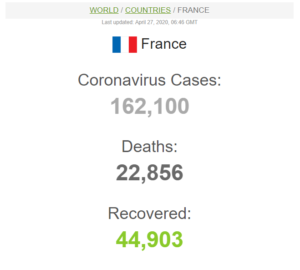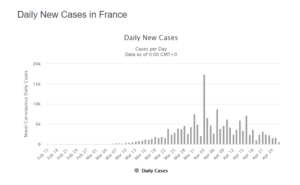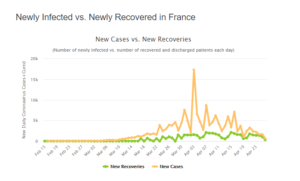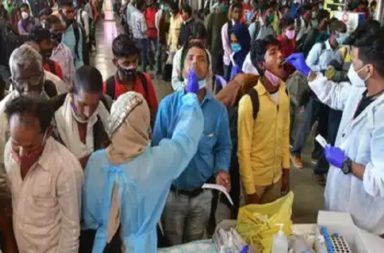The minuscule traces of coronavirus has been found in the Rivers of Paris. On Sunday, Paris City Hall announced that minuscule traces of novel coronavirus found in the non-potable water of the city.
The Water-Authority of Paris tested multiple non-potable water samples in their lab. In these water samples, the minuscule traces has found in the 27 water samples. After the reports of the samples, the network of the water immediately shut down.
The non-potable water of Paris is used for cleaning up the streets, the city park’s, gardens. The non-potable water is also supplied to the ornamental public fountains.
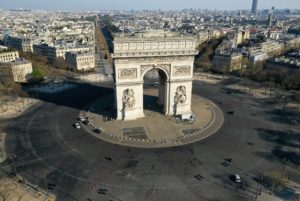
While this sounds quite scary, there are some things to be aware of.
Drinking Water Supply is Safe
The authorities made it very clear that the traces of the novel coronavirus is found only in non-potable water. There are no such traces found in the drinking water.
The test samples were collected from the water supply points for the city’s street-cleaning trucks.
The supply was from the river Seine or the Ourcq canal which runs through the city. The river water is treated partially but not to that of drinking water.
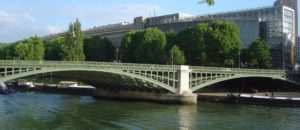
The water of the rivers is used for cleaning up the streets, the city parks, gardens. The non-potable water is also supplied to the ornamental public fountains. Due to the lockdown, all of them are shut at present.
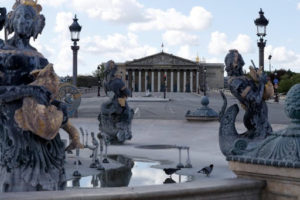
The Paris authorities informed that they have stopped using the water for cleaning up the streets. They are now even more alert and are conducting more tests.
Minuscule traces have found
Out of all the samples collected for the test, 27 samples are found to have minuscule traces of novel coronavirus.
Laurent Moulin, a microbiologist at the Eau de Paris research and development laboratory said that they are at the limit of detection points. We are observing and confirming the trace of viral genome in the water. Around 1,000 small traces of viral genome per litre is found in non-drinking water which is 3,000 to 5,000 times lower than the concentration in raw sewage.
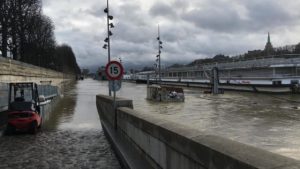
This is not something abnormal to find the traces of the novel coronavirus in the water during a pandemic. The virus can enter the sewage system via the toilets of infected people.
The treatments plants treat the water and remove the most of it. But non-drinking water does not treat in a way drinking water is treated. So the possibility is there of some traces of the virus can be present.
Paris deputy mayor Emmanuel Grégoire in an interview said that this is the case with every epidemic. This is the only reason people advised that one should not bathe in rivers during major gastroenteritis epidemics. There is no reason why coronavirus should escape the rule.
Extra level testing of water
After the reports, the water in Paris is regularly monitored. The level of the testing has ramped up in the context of the health situation.
The water in Paris is fairly regularly monitored, but testing has been stepped up in the context of the health situation. The traces were unable to be detected under normal testing. The extra level of testing was required for an accurate result. “If we hadn’t looked, we wouldn’t have found it,’ added Grégoire.
Use of non-drinking water is suspended
The minuscule traces are found in the water so the Paris authorities decided to suspend the use of the non-drinking water network temporarily. The street cleaning is continued without water. There is a fear of the fine spray of water thrown up by cleaning trucks could be inhaled.
The drinking water is safe from all of this. It is a completely separate section and has no connection with this water, the city authorities stressed over this and made it very clear.
Paris authorities are consulting with the regional health agency to conduct a risk analysis to decide further steps.
France is one of the highest affected countries regarding the global COVID-19 pandemic. Paris has been lockdown since March 17. President Emmanuel Macron last week had announced the extension of lockdown in the Country till May 11. France will unveil its post lockdown plan and lifting of gradual restrictions within the next two weeks.
Prime Minister Edouard Philippe on Sunday said that the people will go through a major change after the lockdown is lifted on May 11. Nothing in their life is going to be same. They may have to learn to “live with the virus” for now as a vaccine may not be possible before 2021, the report said.

Prime Minister Edouard Philippe
France has surpassed the 1.5 lakh confirmed cases of COVID-19 with more than 22,000 deaths and around 44,000 recovered.
